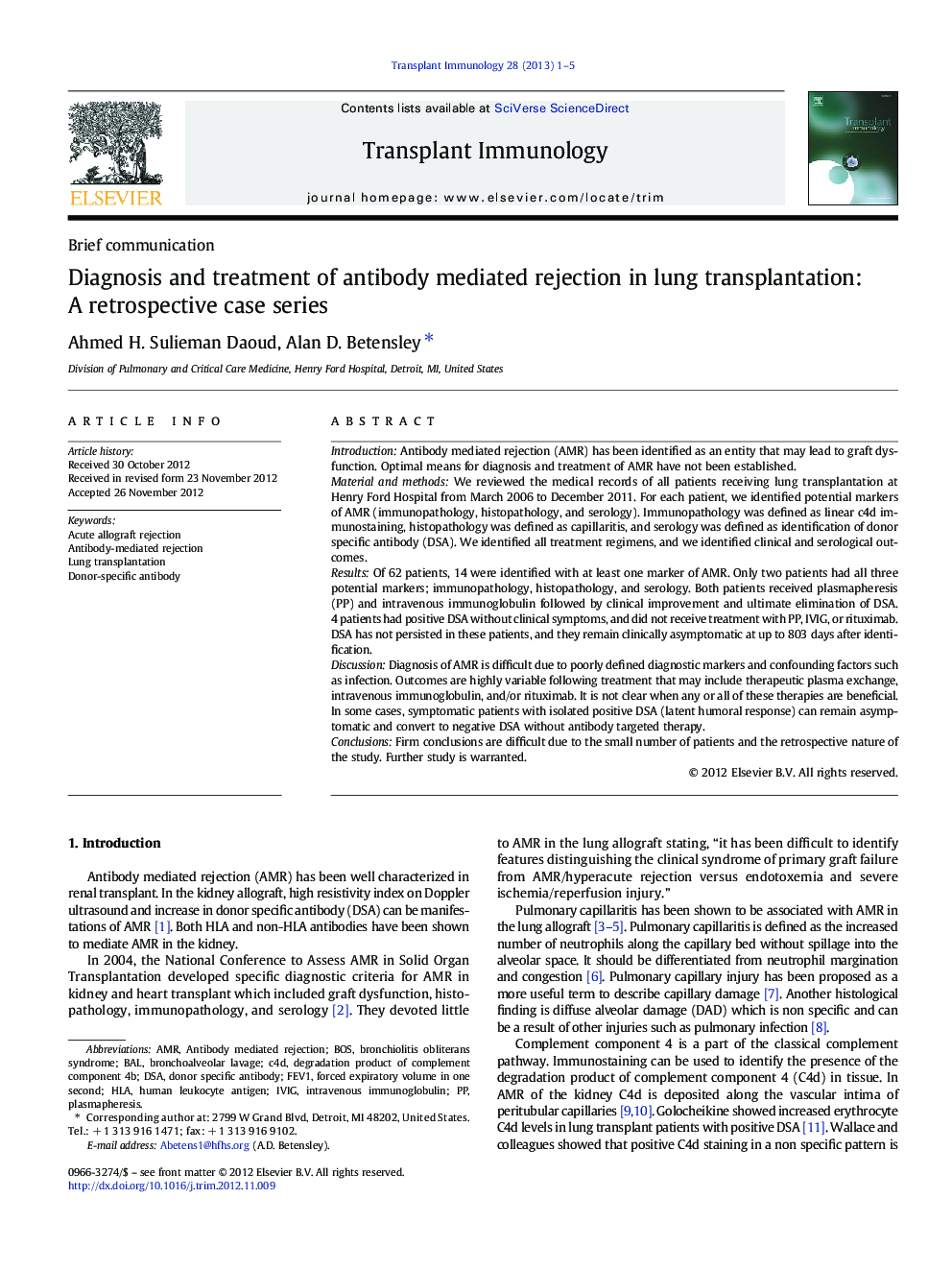| Article ID | Journal | Published Year | Pages | File Type |
|---|---|---|---|---|
| 3392102 | Transplant Immunology | 2013 | 5 Pages |
IntroductionAntibody mediated rejection (AMR) has been identified as an entity that may lead to graft dysfunction. Optimal means for diagnosis and treatment of AMR have not been established.Material and methodsWe reviewed the medical records of all patients receiving lung transplantation at Henry Ford Hospital from March 2006 to December 2011. For each patient, we identified potential markers of AMR (immunopathology, histopathology, and serology). Immunopathology was defined as linear c4d immunostaining, histopathology was defined as capillaritis, and serology was defined as identification of donor specific antibody (DSA). We identified all treatment regimens, and we identified clinical and serological outcomes.ResultsOf 62 patients, 14 were identified with at least one marker of AMR. Only two patients had all three potential markers; immunopathology, histopathology, and serology. Both patients received plasmapheresis (PP) and intravenous immunoglobulin followed by clinical improvement and ultimate elimination of DSA. 4 patients had positive DSA without clinical symptoms, and did not receive treatment with PP, IVIG, or rituximab. DSA has not persisted in these patients, and they remain clinically asymptomatic at up to 803 days after identification.DiscussionDiagnosis of AMR is difficult due to poorly defined diagnostic markers and confounding factors such as infection. Outcomes are highly variable following treatment that may include therapeutic plasma exchange, intravenous immunoglobulin, and/or rituximab. It is not clear when any or all of these therapies are beneficial. In some cases, symptomatic patients with isolated positive DSA (latent humoral response) can remain asymptomatic and convert to negative DSA without antibody targeted therapy.ConclusionsFirm conclusions are difficult due to the small number of patients and the retrospective nature of the study. Further study is warranted.
► Diagnosis of antibody mediated rejection (AMR) in lung transplant is poorly defined. ►We categorized patients as latent humoral response, possible AMR and probable AMR. ►Response to therapy including plasmapheresis, IVIG, and rituximab was inconsistent. ►We observed good outcomes without therapy for latent humoral response.
